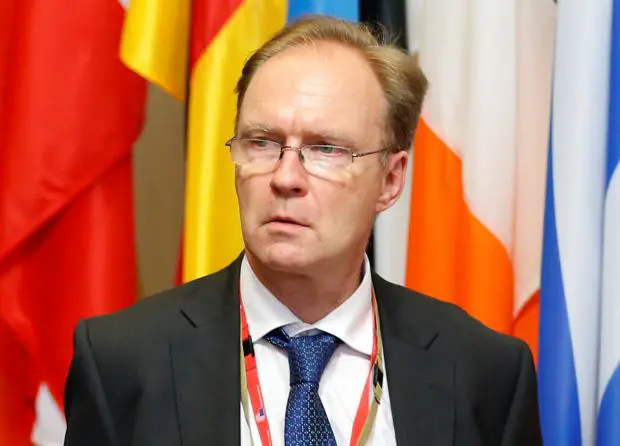Politicians from both the remain and leave camps in Britain's ongoing Brexit process eagerly awaited hearing on Wednesday who would win the job as the country's top diplomat in the European Union (EU).
Britain's Ambassador to the EU, Sir Ivan Rogers, resigned from the job on Tuesday, just days before a critical court ruling on whether the government or parliament should be in the Brexit driving seat.
Rogers's decision to leave his job early has caused dismay among some politicians, while others expressed delight following comments he made last month that a Brexit deal could take up to 10 years to conclude.
In a lengthy farewell letter to his staff in Brussels, Rogers made comments which some political observers interpreted as being highly critical of the government.
"Serious multilateral negotiating experience is in short supply in Whitehall, and that is not the case in the Commission or in the Council (the two main EU executive bodies in Brussels)," Rogers wrote.
"The government will only achieve the best for the country if it harnesses the best experience we have and negotiates resolutely," he said.
In another part of the letter, he urged his diplomatic staff in Brussels to "continue to challenge ill-founded arguments and muddled thinking and that you will never be afraid to speak the truth to those in power."
"I hope that you will support each other in those difficult moments where you have to deliver messages that are disagreeable to those who need to hear them."
Rogers took over the role as the British government's permanent representative in 2013 after being appointed by then-Prime Minister David Cameron.
In his letter to staff, he referred to the likely timetable for the next few years and the triggering of Article 50 -- the process to start Britain's exit process from the EU -- by the end of March.
"It will be best if the top team in situ at the time that Article 50 is invoked remains there till the end of the process," he said.
A new team could also see through the negotiations for any new deal between Britain and the remaining 27 member countries of the EU.
"We do not yet know what the government will set as negotiating objectives for the UK's relationship with the EU after exiting," he added.
Rogers said the structure of Britain's negotiating team needed rapid resolution and the working methods which enabled the team in London and Brussels to function seamlessly also needed to be strengthened.
"As I have argued consistently at every level since June, many opportunities for the UK in the future will derive from the mere fact of having left and being free to take a different path...but others will depend entirely on the precise shape of deals we can negotiate in the years ahead," he added.
 简体中文
简体中文

